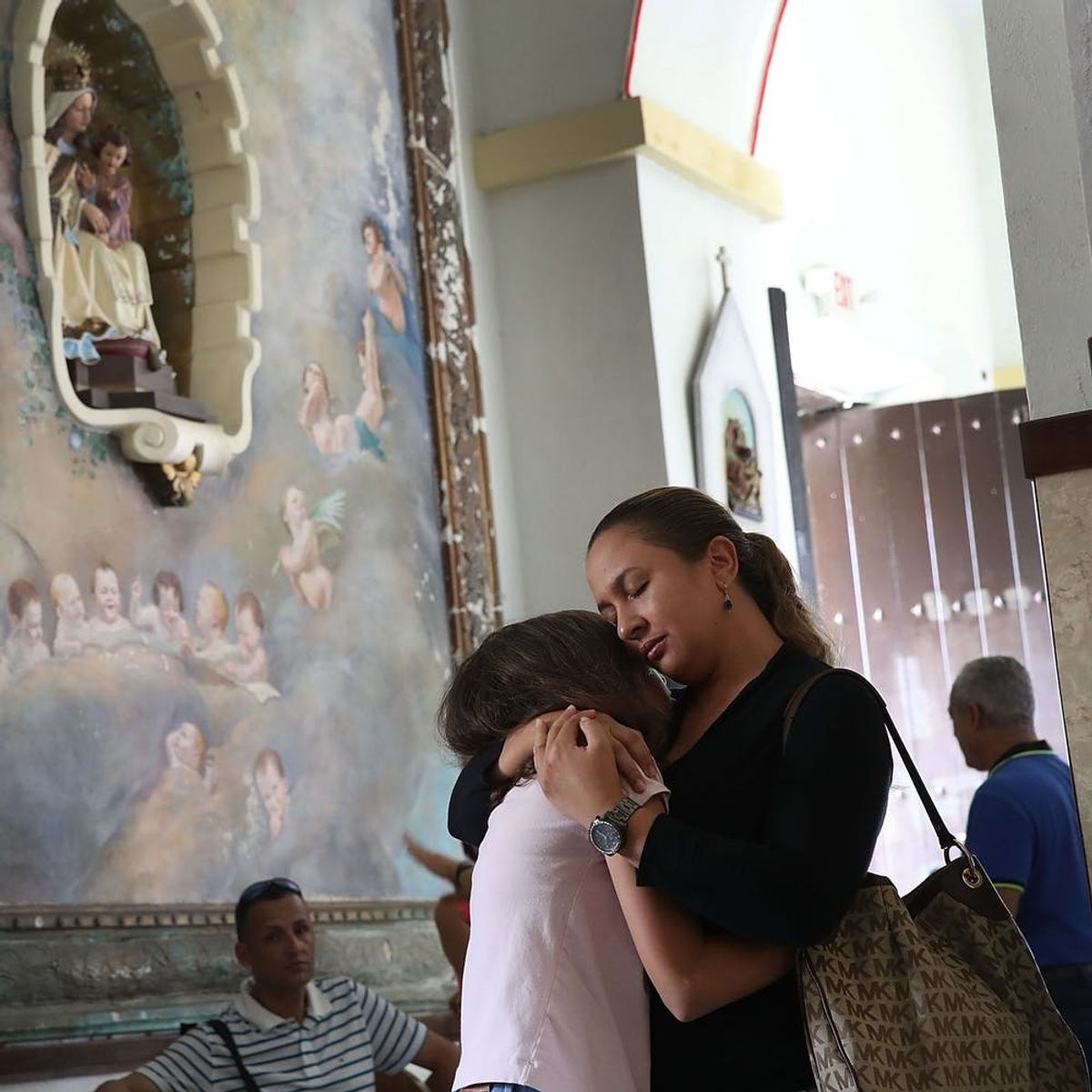In the wake of devastating hurricanes, people are beginning to use a new phrase: “Climate change refugee.”
With Puerto Rico on the Brink of a Humanitarian Crisis, Climate Change Has a Human Face

Parts of the United States and the Caribbean have been devastated by recent hurricanes Harvey, Irma, and Maria. As the death tolls have risen and damage to land and property is assessed, these disasters also call attention to the profound human impacts of climate change.

Following Hurricane Maria, nearly all of Puerto Rico is without power, and there’s no guarantee as to when power will be restored. With power out and communication systems down, hospitals are also suffering.
CNN reports that one of the only hospitals with a working generator only has about two or three days’ worth of medicine and supplies remaining. Ricardo Rosselló, the governor of Puerto Rico, tells CNN that without a bill passed by Congress to supply the necessary aid to Puerto Rico, “there will be a humanitarian crisis” and “a massive exodus to the United States.” The entire island was instructed to evacuate as Maria neared. Thousands of residents are being told to evacuate again, because officials are certain a water dam will soon fail.
Many of us have always thought of events like hurricanes as purely “natural” disasters that are out of the control of humans. But the truth is that climate change, which leading climate experts agree is being driven by human activities, is largely responsible for the frequency and scale of hurricanes, and other environmental disasters that harm huge populations of people, as well as animals, food supplies, and other ecological life.
Climate experts are still examining the specific causes of Harvey, Irma, and Maria, but the evidence so far indicates that rising sea temperatures caused by climate change were a factor. Climate change has also been directly linked to increases in famine and drought in East African countries, to name just a couple of other examples.
The devastation brought about by naturally occurring disasters exacerbated by climate change means that many people simply can’t stay in their homes — not just their physical house, but the geographic places where they live. Dr. J. Marshall Shepherd, the Director of the University of Georgia’s Atmospheric Sciences Program, explains in Forbes that the term “climate change refugees” refers to people who have to flee their nation specifically due to climate change-related disasters, and the broader category of “environmental refugees” is applied to those who must escape due to environmental factors not necessarily caused by climate change.

Shepherd points to citizens of Barbuda and Antigua, a nation in the Caribbean comprised of two small islands, as an example of what a climate change refugee crisis might look like. Following Hurricane Irma, not a single person was still living on Barbuda, Shepherd notes, and most of those who were forced to flee the hurricane went to Antigua. Shepherd argues that because residents of Barbuda were evacuated to what is technically still their own country, they might not be considered “refugees.” The displacement, however, is significant. According to CNN, this is the first time in more than 300 years that nobody has lived on Barbuda.
Further, in a speech last week to the United Nations, Barbuda and Antigua governor Rodney Williams spoke about the total evacuation of Barbuda and the mass destruction on the island, saying, “The entire society has been plucked out of their homeland, from their property, from everything that defines them as a people.”
Williams also asked the international community for aid, and to rethink how they respond to climate change. Climate change is largely driven by consumption in industrialized nations like the US, but has a much more profound and immediate impact on developing countries. According to a report from the New York Times, Antiguan diplomat to the UN, Walton Alfonso Webson has said that the nation is seeing “migrants” and “displaced persons” from climate change.
Meanwhile, president Donald Trump has been silent about the 13 deaths and the overall crisis in Puerto Rico (which, as it happens, is a part of the United States), and has received heavy reprimand from his critics. Hurricane season is still far from finished, which means it’s possible even more people could be harmed or killed because of hurricanes this year.
Do you have thoughts on climate change refugees? Tell us on Twitter @BritandCo.
(Photos via José Jimenez + Joe Raedle/Getty)



















